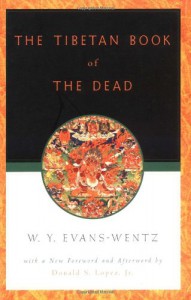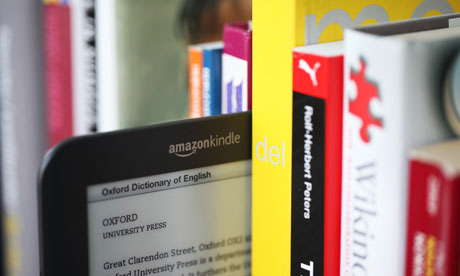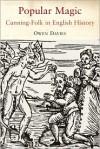LittleMissProcrastination
Reclusive Duck Woman. Artist. Writer. GR Refugee.
Currently reading
Giving a shout out for a lovely friend and great Australian artist Tina Fiveash. I think her work is kick butt. Posting the link to her website as I'm sure others will share my opinion. :D
 5
5
Bill Hicks.
 2
2
Bill Hicks.
 1
1
British Library uploads a million archival images for free for anyone to use, remix and repurpose.
Please repost and share the good news!
We have released over a million images onto Flickr Commons for anyone to use, remix and repurpose. These images were taken from the pages of 17th, 18th and 19th century books digitised by Microsoft who then generously gifted the scanned images to us, allowing us to release them back into the Public Domain. The images themselves cover a startling mix of subjects: There are maps, geological diagrams, beautiful illustrations, comical satire, illuminated and decorative letters, colourful illustrations, landscapes, wall-paintings and so much more that even we are not aware of.
Link to the article http://britishlibrary.typepad.co.uk/digital-scholarship/2013/12/a-million-first-steps.html
Link to the images http://www.flickr.com/photos/britishlibrary
"The Coming of Father Christmas" by MANNING, Eliza F.
 2
2
Not a good idea to pass out in bars...

The near death experience the author recounts in Return from Tomorrow corresponds with the messages behind The Tibetan Book of the Dead, The Egyptian Book of the Dead, the Mystery religions of ancient Greece and Egypt, and countless other near death experiences documented since earliest times.
In the case of the author of Return from Tomorrow, the psychopomp (http://en.wikipedia.org/wiki/Psychopomp ) or Benevolent Deity who accompanied his time on the bardo, assumed the form of Jesus, following the author's own mental thought forms. A Hindu may perhaps see Krishna, an ancient Egyptian Osiris, an ancient Greek perhaps Orpheus. Some people of no religion have reported seeing just the beatific light itself.
I think it rather sad when I see people using this nde as validation for the righteous exclusity of their own faith. I don't think that's the message behind it. It's to rise above pettiness and the constant demands of our child-like egos, and in this way to die before death. To live with mindful awareness, therefore avoiding unhealthy attachments and negative emotions such as rage and envy. And to treat all in the universe with love and respect, regardless of whether they are of the same species, race, gender, faith or religion as you. After all as author Ram Dass says: "We're all just walking each other home."
Also, don't pass out in bars. That scene was bloody awful. And it seems that giving up smoking before death is a pretty good idea too. What a bummer to have that craving as a spirit...
 6
6
An interesting romp, but the premise is not historically correct

An interesting romp, but the premise is not historically correct. Margaret Murray has a lot to answer for. The author's knowledge of Norse mythology was very good however, making worth reading.
I have to add that I believe the author's interpretation of 'dying before you die' is also flawed. It's self awareness and death of the ego that bring enlightenment, like Odin's transformation on the World Tree, not power gained through knowledge, supposedly unreachable by any but the Hedge Rider.
Also the spelling and grammar were sadly lacking.
 2
2

I seriously wish I'd read this book earlier. Puts metaphysical concepts into context. Also, I'm really not interested in nit picking over the merits of alternate translations. It's clear enough, no matter which way it's told.
 5
5
 6
6
 4
4
No more violent sex fantasies, but torture, abuse and cannibalism still ok!
First Jeff Bezos with Amazon and now Michael Tamblyn and his Kobo (and Otis, but he hasn't got round to deletions for sex books yet. I'm sure that his boss, Bezos, will soon have him up to speed on that though).
I was reading this and thought to myself, "what kind of church does Michael Tamblyn go to?"
Censorship. Censorship. Censorship. Why this new Puritanism? Porn rape fantasies and sex with girls of legal age (just) is such a huge industry. No one has to like it to see that a) it is completely legal because no one puts that kind of money at risk and b) no one is forcing people to watch it, vast numbers of people just really, really like viewing it. And perhaps couples like rp'ing it a bit too. But they can't read it any more because according to Bezos and Tamblyn (and Chandler), Censorship is a lovely thing.
Tamblyn says writers can write it but,
"All I can say is that if your dream is to publish “barely legal” erotica or exploitative rape fantasies, distribution is probably going to be a struggle for you."
Out the window goes John Fowles' The Collector, which is a very dark book on definitely-illegal rape and kidnap fantasies. A brilliant 5-star read. What about Steig Larsson's Girl with the Dragon Tattoo? (With its genius pay-back scene). Then there is Shades of Grey itself, not well-written, but pretty much an exploitative fantasy, and enjoyed by many.
What about the classic, Fanny Hill? Exploitative sex fantasies were very popular in Victoria times, but generally at some point in the book it becomes a jolly good romp enjoyed by all. Would that go or does the 'romp' element make it ok? Ann Rice (writing as A.N. Roquelaure) with her pre-Interview with a Vampire trilogy, the Claiming of Sleeping Beauty, a mega-seller, that is nothing but exploitative and violent (mostly spanking and rape) sex fantasies? Will they pull Ira Levin's The Stepford Wives? Are we to read nothing but Disney princes kissing the beautiful girl amid sparkles and rippling music?
Why is wrong with violent sex fantasies? They are fantasies, not real. I suppose reporting on the Yorkshire Ripper with all his rapes, hammer attacks, mutilations and murders will be ok, because it really happened. Writing about rape for titillation will have to be couched in terms of reportage not fantasy.
But it will still be ok to publish books containing child abuse, violent out-of-control people, torture scenes, terrible murders, cannibalism, beating up, trafficking and enslaving women and anything else anyone damn well pleases, so long as it doesn't cross Tamblyn's sexual no-no line. Violence good! Sex bad :-(
I wonder what church he goes to?
Reblogged from Petra X
 2
2
 3
3
"
Banksy
The Future of the Bookstore - A Real Cliffhanger

(taken from the February 27th, 2013 issue of The Economist)
THE digital onslaught of e-books and Amazon-style e-tailers have put bookstores in an existential predicament. Digital books are expected to outsell print titles by 2015 in Britain, says Sam Hancock, digital product manager at HarperCollins, and even sooner in America. With the demise of HMV, that music-peddling stalwart, still fresh in everyone's minds, bricks-and-mortar bookstores appear to be on borrowed time. So, what is the future of the bookstore?
This was the burning questions on everyone's lips at a recent event at Foyles's flagship bookshop on Charing Cross Road in London, where some of Britain's leading literary agents, authors, marketing managers and booksellers gathered to discuss its fate ahead of the bookseller’s move from its current rambling premises to the former home of Central Saint Martin’s art school just up the road.
For a bookstore to remain successful, it must improve “the experience of buying books,” says Alex Lifschutz, an architect whose London-based practice is designing the new Foyles. He suggests an array of approaches: “small, quiet spaces cocooned with books; larger spaces where one can dwell and read; other larger but still intimate spaces where one can hear talks from authors about books, literature, science, travel and cookery." The atmosphere is vital, he adds. Exteriors must buzz with activity, entrances must be full of eye-catching presentations and a bar and café is essential.
The trend for not only incorporating cafés in bookstores but also placing them on the top floor makes good sense. The new Foyles will have one, Mr Lifschutz explains, because this draws shoppers upwards floor-by-floor, which is bound to encourage people to linger longer and spend more. (Top-floor restaurants in department stores abide by similar principles.)
There are plenty of ways to delight the bookstore customer, but few are easily monetised. The consensus is that bookstores need to become cultural destinations where people are prepared to pay good money to hear a concert, see a film or attend a talk. The programming will have to be intelligent and the space comfortable. Given how common it is for shoppers to browse in shops only to buy online later, some wonder whether it makes sense to charge people for the privilege. Victoria Barnsley, head of HarperCollins, thinks it might be a good idea. She cited similar experiments among clothing retailers to charge customers for trying on merchandise. (Only 35% of fiction in Britain is bought in a physical store, says Ms Barnsley.)
But forcing people to pay for the privilege of potentially paying for goods could deter shoppers altogether. A more attractive idea might be a membership scheme like those offered by museums and other cultural venues. Unlike reward cards, which offer discounts and other nominal benefits, a club membership could provide priority access to events (talks, literary workshops, retreats) and a private lounge where members can eat, drink and meet authors before events. Different memberships could tailor to the needs of children and students.
To survive and thrive, bookstores should celebrate the book in all its forms: rare, second-hand, digital, self-printed and so on. Digital and hybrid readers should have the option of buying e-books in-store, and budding authors should have access to self-printing book machines. The latter have been slower to take off in Britain, but in America bookstores are finding them to be an important source of revenue. “The quality is now almost identical to that of a book printed by a major publishing house,” says Bradley Graham, owner of a leading independent bookstore in Washington, DC, called Politics & Prose [a bookstore I have come to love since 'discovering' it in January 2013 --- KOMET]. His shop leases an Espresso Book Machine and makes it available to customers.
The bookstore of the future will have to work hard. Service will be knowledgeable and personalised, the inventory expertly selected, spaces well-designed and the cultural events enticing. Whether book stores, especially small independents are up to the challenge, is not clear. The fate of these stores is a cliff-hanger.
Reblogged from Expendable Mudge Muses Aloud who reblogged from KOMET
 3
3
Amazon wipes customer's Kindle and deletes account with no explanation
***
A Kindle user had her account deleted because it had ties to 'previous abuses of company policy', but the online retailer blanked all follow-up enquiries.
- theguardian.com, Monday 22 October 2012 15.25 BST
- Jump to comments (411)

An Amazon Kindle user has had her account wiped and all her paid-for books deleted by Amazon without warning or explanation.
The Norwegian woman, identified only as Linn on media commentator Martin Bekkelund's blog, approached Amazon when she realised her Kindle had been wiped.
She was informed by a customer relations executive that her account had been closed, all open orders had been cancelled and all her content had been removed, but has been unable to find out why.
 2
2













 1
1


 2
2
